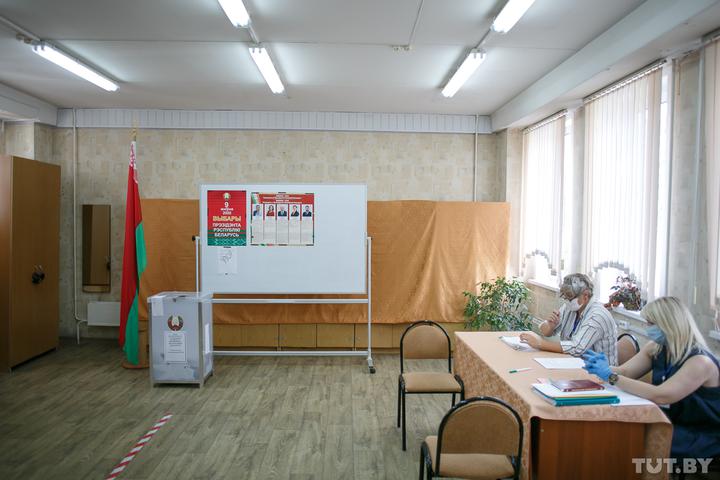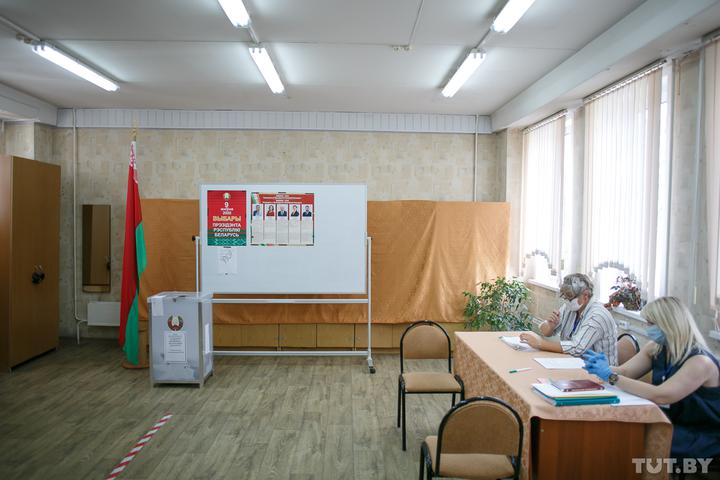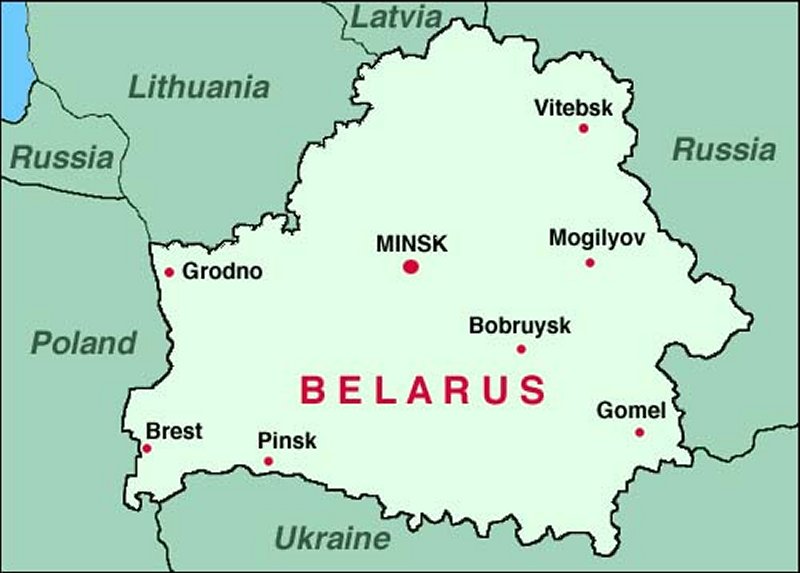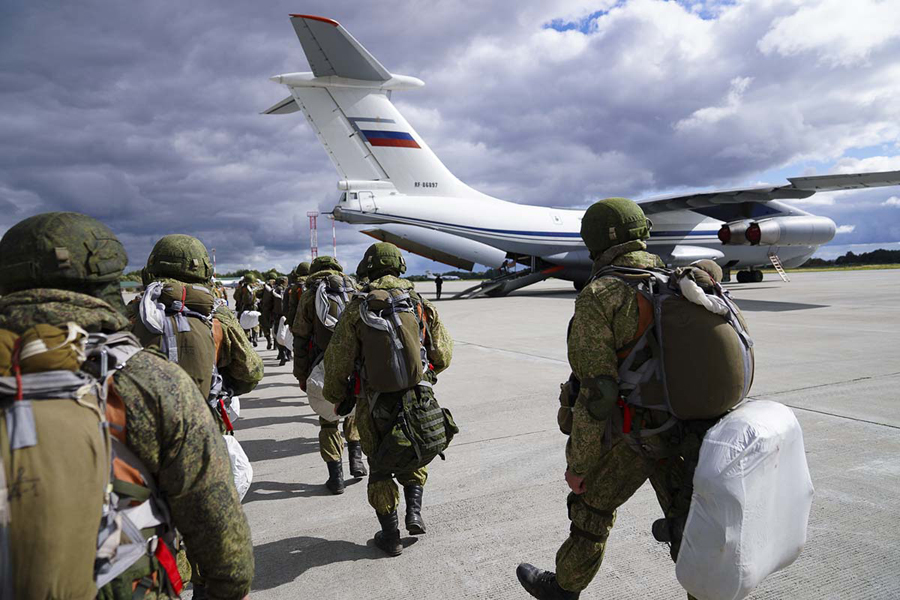Aged just 26, Marta decided to become an observer about a month and a half before the presidential election, and registered on one of the platforms created for coordinating work to be carried out by the independent observers.
Polling station: trouble started almost immediately

Marta was detained on 8 August, the day on which early voting was taking place.
“We expected that we might be arrested. But we thought it would start when the election was over.”
Marta was observing at a polling station at the very school building where she had attended junior school.
Together with her were other young people, one only 19. Some of them had recently completed schooling there.
Marta says that they almost immediately faced problems, as the head of the central election commission announced that due to quarantine restrictions related to COVID-19 there could only be up to three observers at one polling station. Predictably, unlike representatives of the pro-government parties, independent observers were not to be among the three.
The commission members felt unhappy with the presence of the independent observers. At first, the observers tried to monitor from the stairs, which offered a view of the whole polling station. Later, they were forced to move into the hall where they were only able to monitor the voters.
Massive violations were already registered with those people coming to vote.
“We were registering about up to 60 people per day while the protocol was saying there were 240.”
Attempts by the commission members to kick the independent observers out ended with the observers’ arrest.
Detention: law enforcers especially keen on going after the observers
Marta was not arrested at the polling station itself, but nearby when she was talking to a Polish journalist. Both were detained along with a translator. Marta-Daria says that the policemen did not offer any explanation.
“They rather seemed like bandits. They were wearing jeans, t-shirts, and medical masks.”
All the other independent observers were detained as well, one sitting in a cantine having a drink. At first, Marta thought that she had attracted the law enforcers’ attention because she was talking about the situation to a foreign journalist.
“However, when other guys arrived, I realized that the law enforcers were particularly after the observers.”
Later at the court hearing, she discovered that the head of the election commission who tried to kick them out of the polling station was a witness in the case against her.
“There was no single true word in the protocol. It even said that I was detained at the polling station. However, I was not there at that moment.”
According to Marta, the most absurd aspect of the whole situation was that some men had completed their education at the school.
“The school principal knew them by face and by name. It is absurd that you look after these children for 11 years and then surrender them to the riot police.”
Marta adds that the principal as well as other teachers are now saying that they were not involved in the detention.
“The principal’s name was not in the testimonies of the witnesses. So I can’t say that she was involved. However, she knew about the situation at the polling station and she was well inclined towards us.”
The verdict: 15 days
At first, Marta was taken to one of the police departments in Minsk. The law enforcers behaved rudely and took away their mobile phones. Only after about three hours was she told the reason for their detention. They were accused of impeding the electoral procedure and disobedience towards the police. The Polish journalist was released while she and the translator remained in custody.
“Afterwards, we were taken to the Akrestsina detention center where our road trip through the country’s detention centers began.”
Marta says it was the first instance of observers being detained in large numbers. She was shocked to discover that she was to be detained for 15 days. Other observers who were with her, including the 19-year-old observer, received the same sentence.
Detention: up to 50 persons in a cell for four
At the Akrestsina detention center, Klinava was put in a cell that was built to hold four people.
“At first there were 25 people in it. At some point, there were 50. In the end 36 girls with whom we spent that night remained. These were inhuman conditions.”
Marta says that many felt unwell.
“The girls who were taken to the Akrestsina from the protests were not given food. They just drank tap water for two days.”
One of the women suffered from diabetes. Not eating for two days saw her condition become steadily worse.
“We started demanding an ambulance. For this request, they [law enforcers] brought her a piece of bread. She got a bit better. We were afraid that she would not survive.”
Also, during the whole night, they heard paddy wagons bringing new people to the prison. The guys were screaming.
“We hoped that there would be no serious injuries. We did not realize the scale of what was happening until the end.”
Marta says that conditions in the detention center in Zhodino where she was taken afterward were much better.
“They fed us there. They did not beat us. Of course, there was no exercise but it was such a minor thing compared to what had been before it.”
Of the law enforcement officers, Marta remembers two of the cruelest ones. She did not experience their bullying herself but heard them screaming at and abusing others. Later on, volunteers found one of them in social media, the man in his early twenties.
Chilling testimonies of police brutality, humiliation & “re-education” amid vicious crackdown on Belarusian protesters#StandWithBelarushttps://t.co/6s3NdOVoHH pic.twitter.com/FEuQbzQOJb
— Euromaidan Press (@EuromaidanPress) August 15, 2020
Another one, a woman about 30 years old, has not been found yet. Since her release, Marta discovered that the woman had beaten the Belsat journalist Marta was detained with in her stomach. The journalist was hospitalized.
Release: eight days suspended in case of rearrest
Marta was released on 14 August.
https://www.facebook.com/LarysaArtiugina/posts/3432035760161430
In this post Ukrainian film director Larysa Artiugina informed about Marta-Daria's release.
She as well as other detainees signed a document warning them about “administrative violation”.
She spent seven days in detention out of 15. She was warned that if she is detained again she will have to serve the eight days which are left, with other punitive measures to be applied.
Since being released, Marta-Daria has been attending the protests, but carefully.
“The protest should be big. Because they start to detain people when the events are not crowded.”
Klinava is also planning to film the events in her country as she expects it to be a long struggle.
“When a psychopath is ruling the country, it is naive to hope that he will just give up power. I understand that this is just the beginning and it could get even worse. But there is hope that it will all fall apart. We have already reached the point of no return.”
On the DocUa Platform, you can find options on how to support Marta-Daria directly.
or https://www.facebook.com/donate/1123543824684874/1179674872398974/
PayPal bit.ly/byhelppaypal
or
directly to [email protected]
If you know someone in need of help, send them this link to the support claim form: bit.ly/byhelpme
Subscribe to #BY_help accounts on Facebook, Telegram (https://t.me/BY_help), and Instagram for the latest updates.





